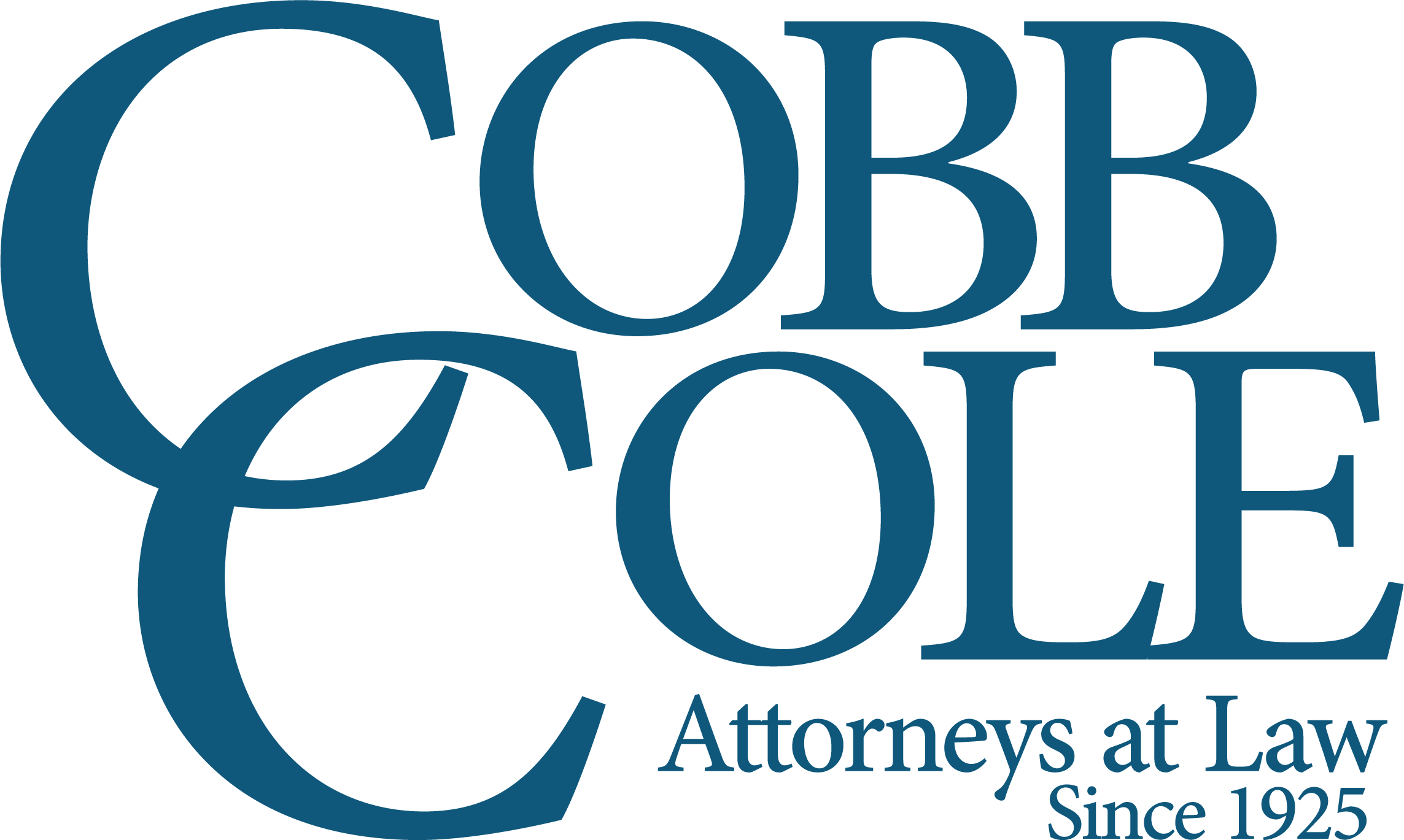How Does Florida’s Drug-Free Workplace Act Affect My Business?
Florida’s Drug-Free Workplace Act offers employers a clear incentive: establish and maintain a compliant drug-free workplace program, and you may receive a discount on your workers’ compensation insurance premium. For business owners, that means the law isn’t just about safety and risk mitigation—it’s also about reducing operational costs and signaling a culture of accountability.
However, because the Drug-Free Workplace Act is an “opt-in” incentive, it is completely voluntary and does not impose any penalty or cost on employers who choose not to participate.
Here’s a breakdown of how the Drug-Free Workplace Act works, what employers must do to qualify, and how working with knowledgeable legal counsel, like the Employment & Labor Law team at Cobb Cole, can help ensure compliance, reduce risk, and support your workforce.
What Is the Florida Drug-Free Workplace Act?
The Drug-Free Workplace Act (DFWA) is a voluntary state program that encourages private-sector employers to implement drug-free workplace policies. Participation allows eligible employers to receive up to a 5% premium discount on their workers’ compensation insurance.
The incentive structure reflects a public policy aim: reduce workplace accidents, promote employee safety, and encourage early intervention for substance abuse issues. But to qualify, employers must adhere to detailed requirements outlined under Florida law.
For reference, the DFWA is codified in Florida Statutes 440.101 and 440.102.
Who Can Participate?
Private-sector employers in Florida can participate in the program by implementing a drug-free workplace program that meets specific statutory criteria. There is no minimum number of employees required to enroll. However, to receive the workers’ compensation insurance discount, employers must:
- Maintain a written drug-free workplace policy.
- Conduct drug testing at required intervals.
- Use certified laboratories for drug analysis.
- Provide appropriate employee education and supervisor training.
It’s not enough to simply post a policy or conduct random testing. The program mandates consistency, procedural fairness, and documentation.
What Are the Required Components?
To qualify for the DFWA, Florida employers must meet the following core requirements:
1. Written Policy Statement
A clear, comprehensive, drug-free workplace policy must be distributed to all employees and job applicants. The policy should include:
- A statement of the employer’s intention to maintain a drug-free workplace.
- Definitions of what constitutes a violation.
- The consequences of policy violations.
- Information about employee assistance programs (EAPs), if applicable.
- An outline of testing procedures and employee rights.
This document must be provided to job applicants at the time of application and to employees at least 60 days before implementing testing procedures.
In many cases, this policy can and should be incorporated into your company’s broader workplace policy manual. If you don’t currently have a comprehensive manual, consider the operational and legal advantages of adopting one—including clearer documentation, easier onboarding, and consistent enforcement. If you’re considering adopting a drug-free workplace policy or an employee manual, contact the Employment & Labor Law team at Cobb Cole. We can assist in drafting or updating a manual that aligns with your business needs and Florida law.
2. Employee Notification and Education
Employers must educate employees about:
- The dangers of drug and alcohol abuse in the workplace.
- The company’s drug-free policy.
- Available treatment options.
Educational sessions must occur annually and include at least one hour of training for employees plus two hours for supervisors (to assist in identifying drug-related behavior and understanding enforcement protocols).
3. Types of Drug Testing
Employers participating in the program must conduct drug testing at the following times:
- Job applicant testing: A negative drug test is a condition of employment.
- Reasonable suspicion testing: This is triggered when a trained supervisor observes behaviors consistent with drug use.
- Post-accident testing: Must occur after any workplace accident that results in injury.
- Random testing: Optional but permitted under the Act.
- Routine fitness-for-duty and follow-up testing: After rehabilitation or as part of ongoing employment conditions.
Employees must be notified of their right to contest or explain test results within five working days after receiving notice of a positive result.
4. Use of Certified Laboratories
All drug testing must be performed by a laboratory certified by the U.S. Department of Health and Human Services (HHS) or licensed by the Florida Agency for Health Care Administration. Testing protocols must conform to established chain-of-custody procedures.
How Do Employers Benefit?
Participating businesses may receive a 5% discount on their workers’ compensation premiums. Beyond this, employers who comply with the program:
- May have a stronger defense against workers’ compensation claims involving intoxicated employees.
- Reduce the likelihood of workplace injuries and related liability.
- Strengthen internal policy enforcement, particularly when dealing with terminations or disputes.
By maintaining documentation and adhering to procedural standards, businesses are also better protected from claims of discrimination or wrongful termination.
Working with business counsel, such as the Cobb Cole Employment & Labor Law group, helps ensure the policy framework meets all applicable legal standards and is defensible in litigation.
What Are the Pitfalls to Avoid?
Common errors include:
- Using an outdated or overly broad drug-free policy.
- Failing to train supervisors appropriately.
- Not using certified laboratories for testing.
- Testing without providing proper notice.
- Retaliating against employees who seek treatment.
These missteps can jeopardize eligibility for the insurance discount and open the door to legal liability.
Do You Need Legal Help to Implement a Compliance Program?
While participation is technically voluntary, compliance is highly regulated. The benefit of legal guidance lies in:
- Crafting a policy that is legally sound, specific, and enforceable.
- Ensuring your notification procedures and training modules meet statutory guidelines.
- Structuring a documentation system that supports your legal position in any dispute.
Cobb Cole’s Employment & Labor Law team regularly advises Florida businesses on compliance matters, HR policy development, and risk mitigation. Whether you’re rolling out a new program or refining an old one, the right legal framework supports safer, more efficient operations.
Legal Considerations for Termination and Claims
A compliant, drug-free workplace policy can support an employer’s decision to terminate an employee who fails a drug test, provided the procedures were followed correctly. Florida law offers additional protection to employers who act in good faith within the program’s framework.
Still, terminating an employee for a positive test result without following notice procedures or confirming lab compliance can backfire. Each disciplinary decision should be documented carefully and reviewed when necessary.
Looking Ahead: Drug-Free Policies in Modern Workplaces
The legal landscape is evolving, particularly as states reconsider marijuana laws and workplace protections. Florida employers should be aware that marijuana remains a controlled substance under both federal and Florida law, so its use (medical or otherwise) can still impact eligibility under the Drug-Free Workplace Act.
Employers should consider integrating drug-free policies into broader policy manuals that address attendance, harassment, social media, and safety. This video provides a useful primer on why having a full workplace manual is still the best practice.
In addition to labor compliance, business owners often need guidance on licensing, contracts, real estate, corporate governance, and more. Cobb Cole’s Business & Corporate Law team can support every aspect of your company’s legal lifecycle—from formation through growth and transition.
Florida’s Drug-Free Workplace Act is more than a safety measure—it’s a cost-saving opportunity and a liability management tool. But to unlock its benefits, employers need more than just good intentions. They need a policy that is current, comprehensive, and compliant.
If your business is exploring how to participate in the program or needs to review an existing policy, contact Cobb Cole’s Employment & Labor Law group today.

